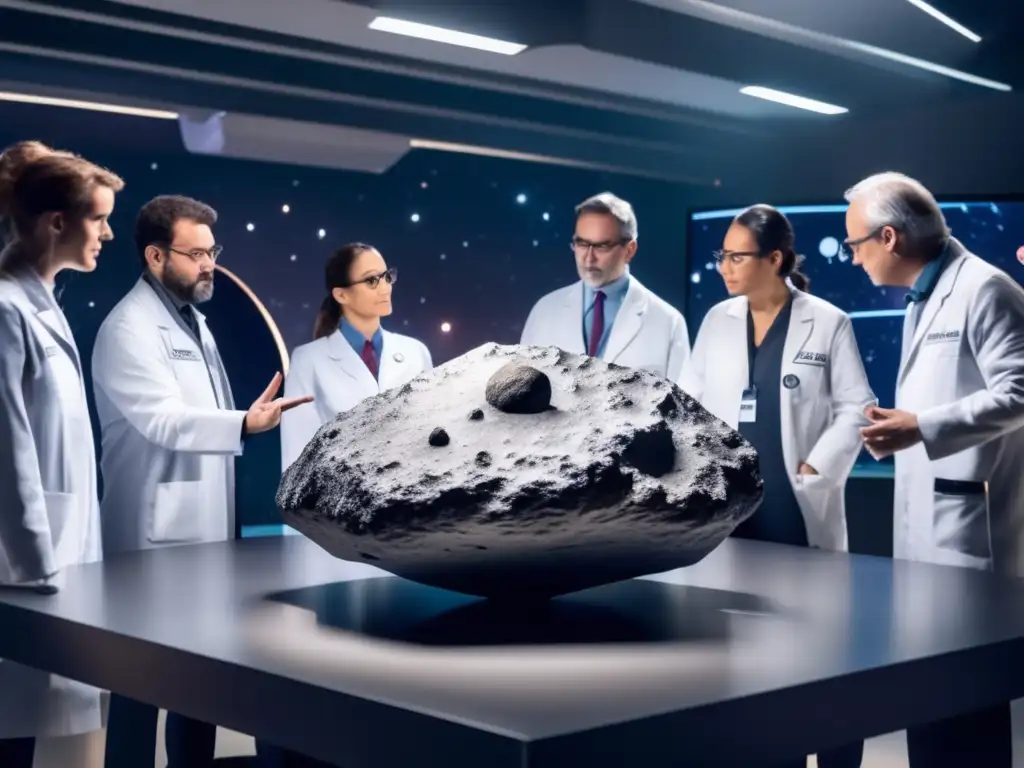Asteroids And Climate Change: A Complex Connection

Introduction
Asteroids are fascinating celestial objects that have captured the imagination of scientists and enthusiasts alike. These space rocks have been the subject of numerous studies, ranging from their composition and structure to their potential impact on Earth. One aspect of asteroids that has gained increasing attention in recent years is their potential role in climate change. Although the connection may not be immediately apparent, asteroids can have a profound impact on our planet's climate, both directly and indirectly.
The Asteroid-Climate Change Connection

Asteroid Impacts and Climate Change
Perhaps the most direct way in which asteroids can affect Earth's climate is through impact events. When an asteroid collides with the Earth, it releases a tremendous amount of energy, often resulting in catastrophic consequences. In addition to the immediate destruction caused by the impact itself, the aftermath can be equally devastating. For example, the Chicxulub impact event, which occurred around 66 million years ago, is believed to have caused mass extinctions and contributed to the end of the dinosaurs. One of the ways in which the impact could have influenced the climate was by releasing large amounts of gases, including carbon dioxide, into the atmosphere. This would have caused significant warming, leading to changes in ecosystems and weather patterns.
Asteroid Mining and Climate Change
Another indirect way in which asteroids could influence climate change is through mining activities. With the increasing interest in using asteroids as a source of valuable minerals and resources, there is a risk of exacerbating climate change by increasing the demand for energy and transportation. The mining process itself can also result in emissions and disturbances to local ecosystems. However, there is also an argument to be made that asteroid mining could potentially reduce the need for environmentally harmful practices on Earth, such as strip mining and deforestation.
Asteroid Deflection and Climate Change
Finally, asteroids could play a role in mitigating the effects of climate change through the use of asteroid deflection technologies. If an asteroid were to be heading towards Earth, there are methods that could be used to alter its trajectory and prevent collision. While this may seem unrelated to climate change, it is worth noting that some of the proposed methods involve leveraging solar energy to power deflection systems. This could potentially reduce the reliance on non-renewable energy sources and contribute to the fight against climate change.
The Future of Asteroids and Climate Change

Research Priorities
As our understanding of both asteroids and climate change continues to evolve, there are several areas of research that should be prioritized to shed more light on the connection between the two. These include:
- Modeling the potential climate impacts of asteroid impacts of varying sizes and compositions.
- Assessing the carbon footprint of asteroid mining activities and developing sustainable methods for resource extraction.
- Investigating the feasibility of using asteroid deflection technologies as a means of reducing greenhouse gas emissions.
Policy Implications
Given the potential impact of asteroids on our planet's climate, it is important that policies and regulations are put in place to ensure responsible asteroid exploration and mining activities. This includes measures to minimize the carbon footprint of such activities and to protect local ecosystems. It is also important to prioritize funding for research into asteroid deflection technologies to ensure that we have the tools necessary to prevent catastrophic impact events.
Frequently Asked Questions

-
Can asteroid impacts cause immediate climate change?
Yes, asteroid impacts can cause significant changes to the Earth's climate, both in the short and long term.
-
Is asteroid mining environmentally sustainable?
There is no definitive answer to this question, as it depends on a number of factors, such as the size and composition of the asteroid being mined and the methods used for resource extraction.
-
How likely is an asteroid collision with Earth?
The likelihood of an asteroid collision with Earth is relatively low, but the potential consequences are so catastrophic that it is important to remain vigilant and develop effective deflection technologies.
-
What are the potential benefits of asteroid deflection technologies?
Asteroid deflection technologies could potentially help mitigate the effects of climate change by reducing the reliance on non-renewable energy sources and by preventing catastrophic impacts that could release large amounts of greenhouse gases into the atmosphere.
-
What policies are in place to ensure responsible asteroid exploration and mining?
Currently, there are few policies in place specifically for asteroid mining and exploration. However, there are regulations related to space activities, such as the Outer Space Treaty, which establish principles for responsible behavior in space.
Conclusion
Asteroids and climate change may seem like unlikely bedfellows, but as we have seen, there are complex connections between the two. Whether through direct impact events, mining activities, or deflection technologies, asteroids have the potential to significantly influence our planet's climate. It is critical that we continue to prioritize research into these connections and to develop responsible policies and technologies for asteroid activities. By doing so, we can better protect our planet and ensure a sustainable future for generations to come.
Thank you for taking the time to learn more about this fascinating topic. We encourage you to share your thoughts in the comments section and to connect with us on www.asteroidrealm.com.
Additional Resources

To learn more about asteroids, climate change, and related topics, check out the following resources:
 Tektites And Impact Glass: The Tell-tale Signs Of Asteroid Strikes
Tektites And Impact Glass: The Tell-tale Signs Of Asteroid Strikes The Threat From Outer Space: Understanding Asteroid Impact Risk
The Threat From Outer Space: Understanding Asteroid Impact Risk Tales Of Destruction: Notable Asteroid Impacts In Literature
Tales Of Destruction: Notable Asteroid Impacts In LiteratureIf you want to discover more articles similar to Asteroids And Climate Change: A Complex Connection, you can visit the Asteroid Impacts category.
Leave a Reply

Articulos relacionados: